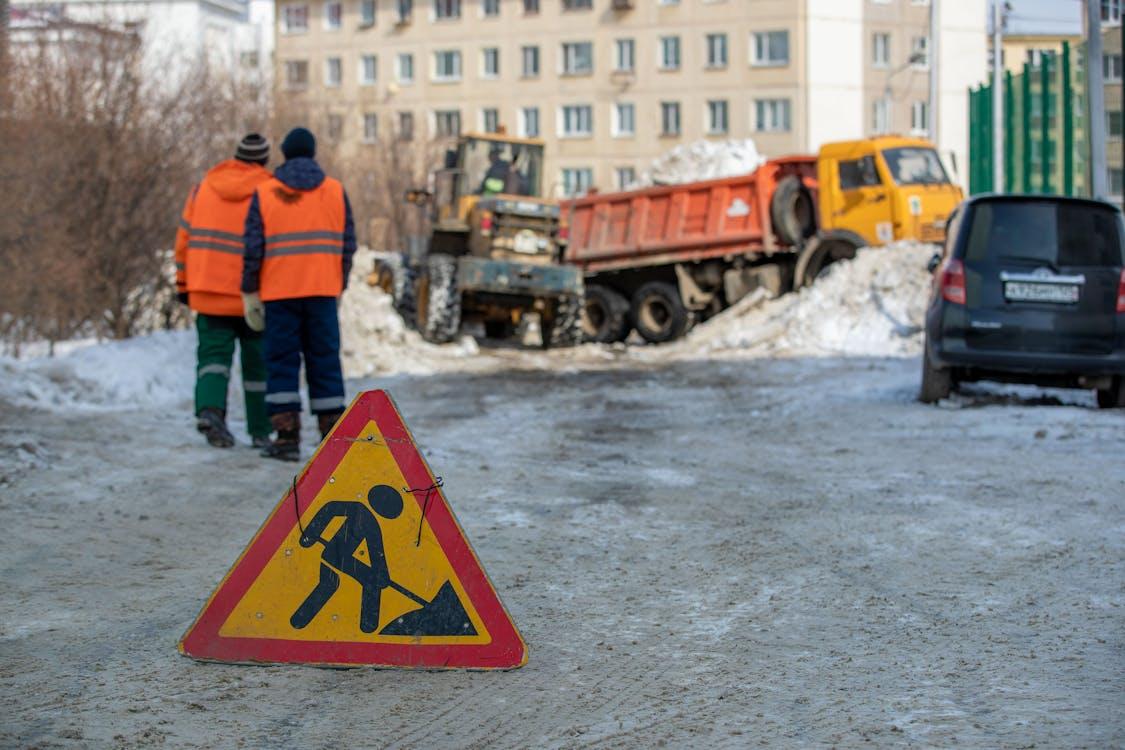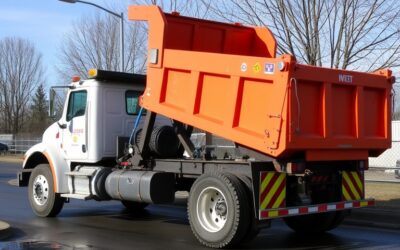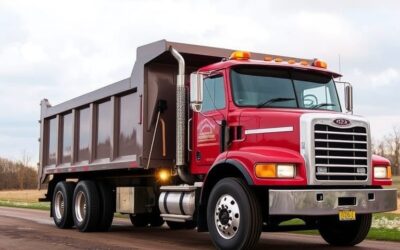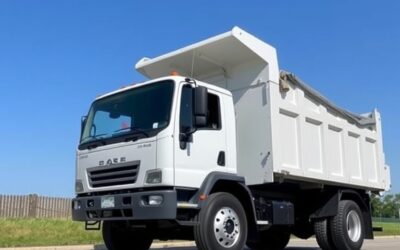Truck accidents can cause big trouble for operators, other vehicles, and anyone nearby. These heavy trucks, used in construction, waste management, and other industries, carry substantial loads and face various operational hazards. Ensuring the safety of these trucks is paramount to preventing accidents, reducing injuries, and avoiding costly damages.
Understanding Automatic Lowering Units in Trucks
Automatic lowering units are smart safety devices built to keep heavy-duty trucks stable, such as frameless dump trucks, roll-off dump trucks, and frame type dump trucks. These units play a critical role in maintaining the truck’s stability by automatically lowering the truck bed or load when instability is detected. This action stops tipping and helps drivers keep control.
The core function of an automatic lowering unit is to use sensors to monitor the truck’s balance and detect any signs of tipping or instability. When these sensors identify a potential risk, the system activates and lowers the load or bed to a safer and more stable position. This immediate response can avert potential accidents, ensuring the safety of the operator and others nearby.
In addition to preventing accidents, automatic lowering units contribute to the overall efficiency of truck operations. By automating the lowering process, these units reduce the need for manual intervention, allowing operators to focus on other critical tasks. With real-time monitoring and adjustments, automatic lowering units provide an extra layer of security and peace of mind for truck drivers.
Common Risks Associated with Truck Operations
Truck operations come with several inherent risks that can lead to accidents if not properly managed. Understanding these risks is essential for implementing effective safety measures and reducing the likelihood of mishaps.
- Tipping Over: The biggest risk in truck operations? Tipping over. This can occur due to uneven loads, abrupt turns, or operating on sloped terrains. Tipping poses severe dangers, not just to the driver but to everyone nearby, causing injuries and damage.
- Load Shift: An improperly secured load can shift during transit, destabilizing the truck. Load shifts can result in loss of control, making it difficult for the driver to maneuver the vehicle safely. This risk is particularly high in dump trucks, where the load is often loose and may move unexpectedly.
- Brake Failures: Brake failures are another common risk in truck operations. Heavy loads put significant strain on the vehicle’s braking system, and if not adequately maintained, brakes can fail, leading to accidents. Regular brake inspections and maintenance are crucial to prevent this issue.
- Poor Visibility: Trucks are larger and longer than most vehicles on the road, leading to significant blind spots. Poor visibility can result in collisions, especially when reversing or navigating tight spaces. Utilizing mirrors and backup cameras can help mitigate this risk.
- Mechanical Failures: Trucks are complex machines with many moving parts. Mechanical failures, such as hydraulic system malfunctions or tire blowouts, can lead to accidents if not promptly addressed. Regular maintenance and timely repairs are essential to keep the truck in safe operating condition.
By understanding and addressing these common risks, truck operators can implement safety measures to protect themselves and others, ensuring smoother and more secure operations.
How Automatic Lowering Units Help Prevent Accidents
Automatic lowering units spot tipping risks fast and lower the load to keep things balanced. This system relies on advanced sensors that monitor the truck’s tilt angle and load balance. When the sensors detect an unsafe condition, the unit activates and lowers the truck bed or load to a safer position.
One primary way these units prevent accidents is by addressing the tipping hazard. Trucks carrying heavy or uneven loads can easily become imbalanced, especially when navigating slopes or uneven terrain. The automatic lowering unit responds to these hazardous conditions before they escalate, effectively reducing the risk of tipping over.
Additionally, by automating the process of load adjustment, these units minimize human error. Operators may not always be aware of subtle shifts in load balance or changes in terrain. The automatic system provides a constant check and balance, responding faster than a human operator could. This immediate reaction ensures continuous stability and prevents many accidents that could result from delayed human actions.
Benefits of Implementing Automatic Lowering Units in Truck Fleets
Implementing automatic lowering units in truck fleets offers several significant benefits. These advantages extend beyond just enhancing safety, contributing to improved operational efficiency and reduced costs.
- Increased Safety: The biggest win? More safety for operators and everyone on-site. By preventing tipping and stabilizing loads, these units help reduce the number of accidents, injuries, and equipment damage.
- Operational Efficiency: Automatic lowering units optimize the load handling process, allowing operators to focus on other critical tasks without constantly monitoring the truck’s stability. This automation leads to smoother and more efficient operations, saving time and effort.
- Cost Savings: Preventing accidents and reducing equipment damage translates to significant cost savings. Fewer incidents mean lower repair costs, reduced downtime, and fewer insurance claims. These savings can be substantial, especially for large fleets with many trucks.
- Prolonged Equipment Lifespan: Regular use of automatic lowering units can help reduce wear and tear on the truck’s components. By keeping the load balanced and preventing tipping, these units help your trucks last longer.
- Compliance with Safety Regulations: Many regions have strict safety regulations for heavy-duty truck operations. Implementing automatic lowering units helps ensure compliance with these regulations, avoiding potential fines and enhancing the company’s safety reputation.
Conclusion
Automatic lowering units are a must for safer, smoother truck operations. These advanced systems prevent tipping accidents by monitoring and adjusting the truck’s load in real time, significantly reducing risks associated with heavy-duty trucking. For operators and fleet managers, understanding and implementing this technology can lead to safer, more efficient, and cost-effective operations.
Emphasizing safety and incorporating innovative solutions like automatic lowering units is essential as we move through 2024. These units are a practical investment in protecting not just the vehicles but also the lives of the operators and personnel involved.
For further insights into how automatic lowering units can transform your fleet’s safety and efficiency, check out Wink Anti-Tip. Our solutions are designed to keep your truck operations secure and reliable. Contact us today to learn more about our state-of-the-art anti-tip kits.





